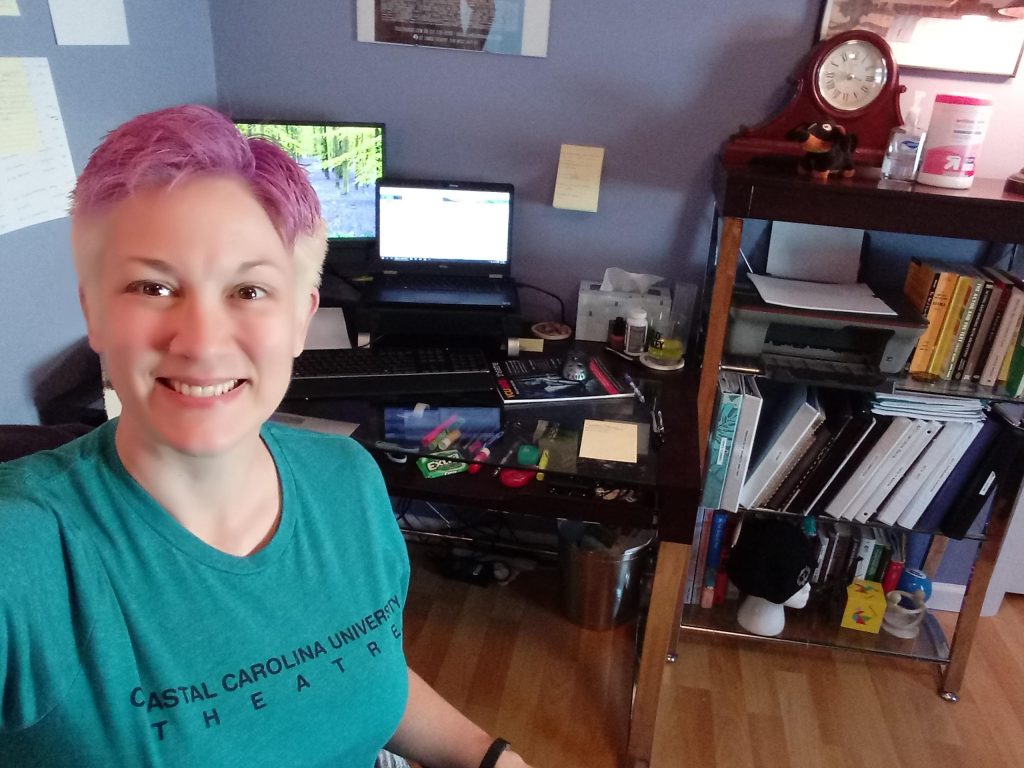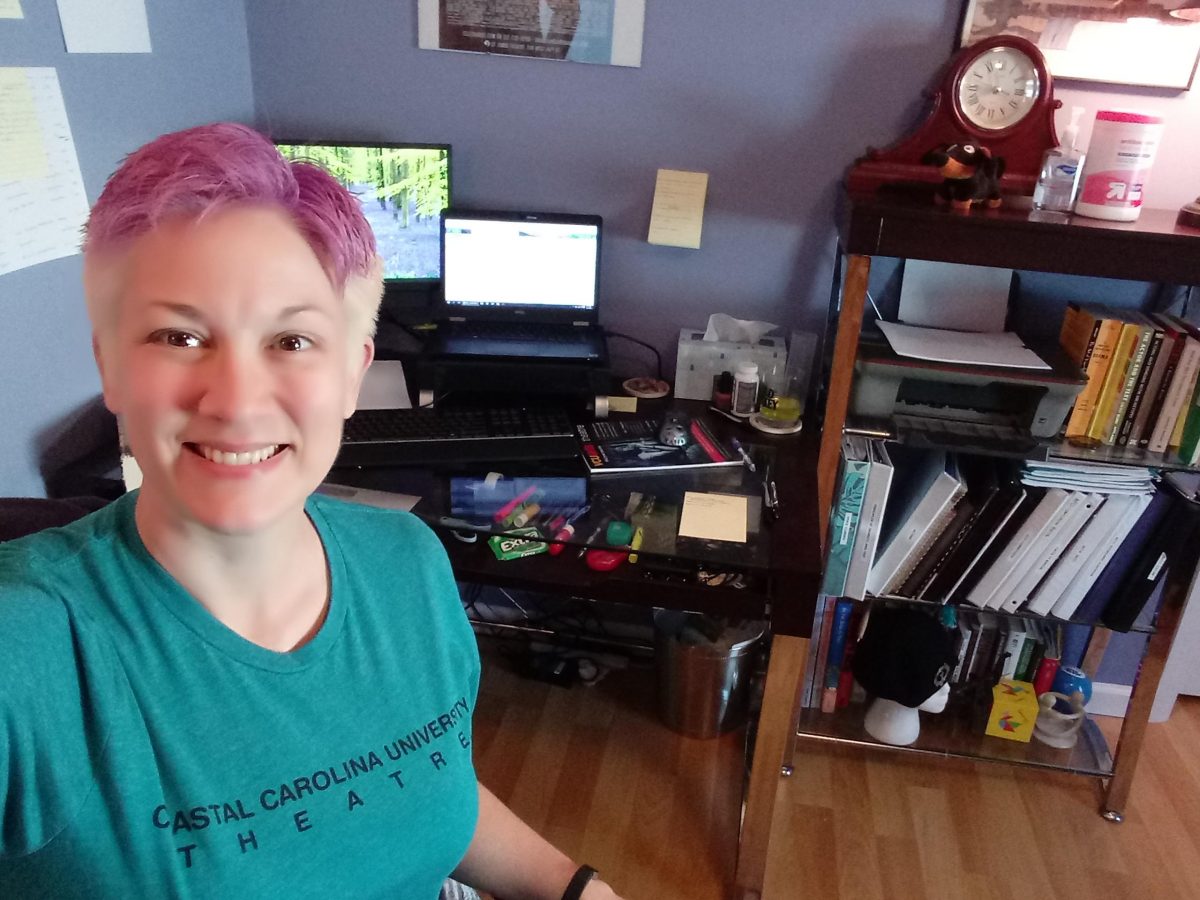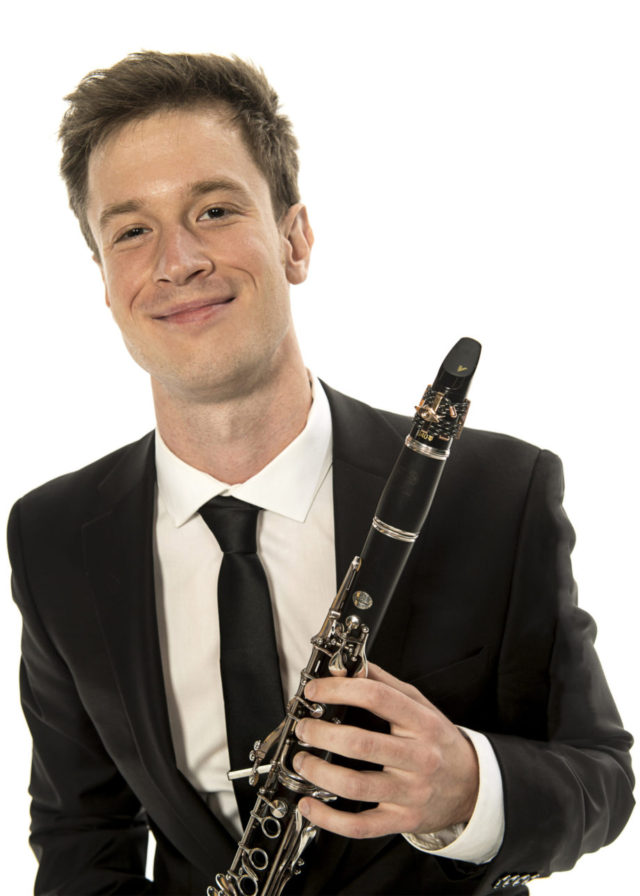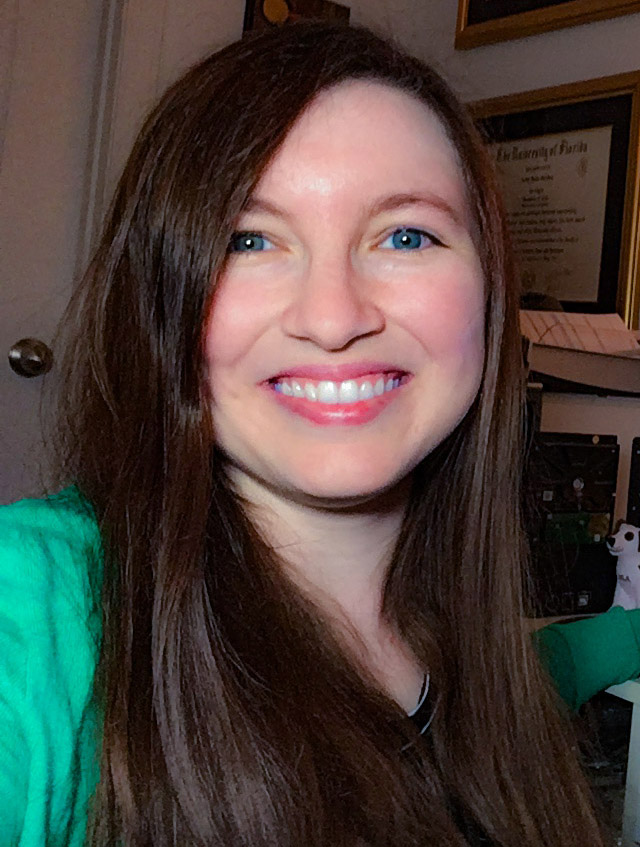
Kris McIntyre, lecturer in the Department of Theatre, took a moment to share her thoughts and experiences transferring her instruction to a fully online model. On the way, she made great use of her professional network, discovering a wide array of materials available that guided and inspired her. Ultimately, she passed on that collaborative spirit and approach, offering her own expertise to other instructors and teachers. Meanwhile, her students keep her busy and motivated as she continues her innovative practices in teaching acting and voice in an online environment.
From Professor McIntyre:
Welcome to “A View from a Desk”! I teach in the Theatre Department, which you can imagine makes for an interesting transition into online teaching. This semester, my academic load consisted of teaching two core courses: THEA 130, Principles of Dramatic Analysis, and THEA 149, Acting for the Non-Major; and three majors courses: two sections of THEA 242, Vocal Production, and one section of THEA 142, The Speaking Voice. In addition, I was working with BA senior Shaughnessy Burns on overseeing her direction of the Second Stage Production of The Women of Lockerbie, which was also to be her Honors Thesis project.
In recent years, I completed the Distance Learning program through CeTEAL, as well as received a grant from the COOL office to create Dramatic Analysis as a fully online course, so I initially felt prepared to go to online instruction with my literature course. Moodle has been integrated into all of my courses for years, and knew I would be proficient in making ECHO 360 videos of me teaching from home, uploading audio-guided Power Point lectures, creating assignments for my students to be able to upload videos and journals and connect with their peers, and in linking library resources and videos to easily supplement their learning.
But how to teach my performance classes was another thing altogether. Theatre is an interactive discipline, and I needed to see and hear my students while working on their monologues to help them clarify choices, adjust their posture, make distinctions in articulating sounds, and other factors. How was I going to teach scansion and iambic pentameter to 53 voice students, many of whom had not performed Shakespearean text before?
Just when I reached the peak of my consternation, which literally consisted of walking around my house saying, “How do I teach voice and acting classes online?!?”, I noticed that hundreds of theatre friends across the country were on Facebook expressing the same quandary. It prompted the creation of the Theatre Education Distance Learning (Resource Sharing and Support Network), where every day people were adding hundreds of links to online teaching ideas, portals, software, streaming services for theatre…you name it! It not only made me feel far less alone, but I gleaned many ideas for how to maintain a sense of connectivity and interaction among my courses. And the theatre community world-wide has truly come together to provide free streaming videos of world-renowned theatre, music, and dance performances for educators, as well as all arts lovers. One common theme that has come from this that keeps motivating me is, “When the world is in a crisis, and we are looking for a little bit of connection to our humanity, where else would we turn but to the arts?”
So, in that week we were given to prepare for going fully online, I decided to turn my angst into assistance. I work for innumerable secondary theatre teachers through my service as the Vice President of the Southeastern Theatre Conference and as the South Carolina Theatre Convention’s auditions coordinator, and I told them that if any of them could use a “guest teacher,” I would be happy to host a class for them. I have since held sessions on Shakespearean text, how to audition for college theatre programs, selecting a monologue, and applying tactics to text work, and I’ll be doing many more of these before the school year has concluded.
This thinking helped me to prepare better for my own courses, which are now a combination of prepared lectures that I can upload, ECHO 360 video tutorials of me teaching them a specific skill, video and homework submissions from them that I can correct and scan back to them for review, and my favorite part: Zoom classes. Each week my students and I log into Zoom, an online meeting portal in which every person who logs in can be seen and heard in real time, and I answer their questions, watch and provide feedback on their monologues, and just check in with them as human beings. It is now the highlight of my week, although I am limiting it to one hour a week with each class so as to not overload them with obligations. They love being able to check in with their classmates and see each other’s work and progress.
Zoom has also been the way we have been maintaining committee meetings, watching the teaching demos of job search candidates, and weekly faculty meetings.
While I would normally be working long hours every day due to rehearsals in the evenings after my days spent teaching, I am now working long hours because most lessons must be taught in four different ways, and the amount of emails from students has grown incredibly. I have managed to maintain my sanity by turning my spare room into an office, complete with a spare bed-turned-filing-system, regular breaks for walks with my family, and a never-ending supply of snacks! And while my previous office mate in the Edwards building, Shawna Roessler in the Department of English, was a fabulous person to share a space and time with, my new office mate, my miniature dachshund Fiona, is incredibly adorable, and it has made my students happy to see her in the background of our Zoom meetings.
For more information on Professor McIntyre: https://www.coastal.edu/academics/facultyprofiles/humanities/theatre/kristiraumcintyre/
For more information on the CCU Theatre Department: https://www.coastal.edu/theatre/



